- How Did Brazil’s Top Internet Ad Targeting Company Get Started?
- What Is The Role Of Advertising Agencies In Brazil?
- Learn Why Independent Publishing Is Important To Democracy.
Full Interview Audio
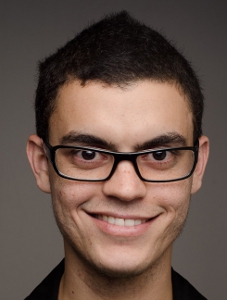
Personal Info
Sports Teams:Corinthians
Favourite Books:
- 1984 by George Orwell
- The Hitchhiker’s Guide to the Galaxy by Douglas Adams
- The Code Book by Simon Singh
Most Influenced By:Paul Graham, Romero Rodrigues,
Twitter: http://twitter.com/marcogomes
Personal Blog: http://marcogomes.com
Website: http://boo-box.com
Interview Highlights
This is a condensed, lightly edited transcript of an audio interview. The full audio is available and highly recommended. The interviewee may post clarifications in the comments.
Adrian Bye: Today I’m here with Marco Gomes, the founder of boo-box, which is a Brazilian advertising company. Marco, thanks for joining us. 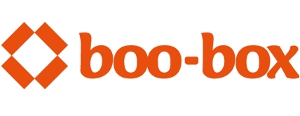
Marco Gomes: Thank you very much for the opportunity.
Adrian Bye: Do you want to tell us a little bit about you, where you’re from in Brazil and your life in general before we talk about business?
Marco Gomes: I’m from Brasilia, the capital of Brazil. I lived there until I was 20. When I was 20 I made this prototype of a social media advertising company and moved to Sao Paulo to create my company. I did computer science at the Brasilia Federal University, called UnB, but I dropped out, so I don’t have a degree. I did three years of computer science but I did an executive education at Stanford University in California on strategic marketing management in 2011, after I started my company. That’s my academic preparation, it’s not even a degree. I’m a dropout, I don’t have a degree, and that’s about it. I’m from a small city 40 km from Brasilia. I grew up and lived there in a lower middle-class community with 200,000 people until I was 20 years old and moved to Sao Paulo, probably the biggest city in the southern hemisphere. It was kind of a shock to go from a small city with 200,000 people to one with 18 million people.
Adrian Bye: Did you move because of business?
Marco Gomes: Yes, I moved to start my company. All the advertising business in Brazil is centralized here in Sao Paulo. I needed to be very close to the advertising agencies and advertisers in Brazil. I was 20 years old, no wife, no kids, so it was pretty easy for me to move anywhere. So I moved and started my company with a co-founder. I like Sao Paulo a lot, I think Sao Paulo is the best place to work, make business and grow professionally in Brazil. We do have chaotic traffic, we do have very bad public policies, do have lots of urban problems. But you need to learn to live with that if your objective is to grow professionally and to get very good business deals. Sao Paulo is the place if you are in Brazil.
Adrian Bye: So tell us a little bit about your company.
Marco Gomes: boo-box is a social media ad network. We have a network of 430,000 websites that use our tools to earn money with advertising. So our advertising products, like link shorteners that make you earn money with advertisers, advertising spaces like standard IAB advertising space like banners and super banners and that kind of stuff. And we help these 430,000 websites to earn money through advertising. On the other hand we help advertisers to be present on this social media audience. In Brazil, we have 95 million internet users, and 97% of them use social tools. So we are very much a social culture 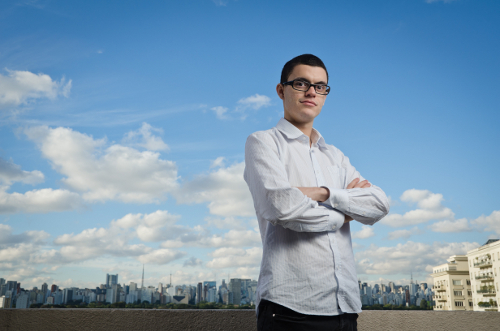
Adrian Bye: Your company does brokering effectively for just brands, or is it brands and direct response companies?
Marco Gomes: We do just branding advertising and we do it mostly because of our technology. This is not just an intermediary business, it’s not like you buy cheap and you sell expensive. We have very strong and complex technologies to make behavioral targeting. So we do very specific targeting based on each individual that is accessing our network of websites, and based on the behavior of these people we display ads for them. We have the behavioral profiles of 60 million people of the 90 million of the Brazilian internet users. With these behavioral profiles we can display better advertising. So we do know how the person behaves online, what he consumes, which kind of content he likes better, which kind of content he interacts more, which kind of computer he uses, which kind of device and screen size and internet connection. Our segmentation algorithms are very good and we have 60 million people on our hand. That’s a very large number of people we can target with advertisement, and all of it completely private, completely anonymous. We don’t have pictures of people or names, so it’s completely safe for the audience and completely effective for the advertiser.
Adrian Bye: Let’s talk about the side of a brand. Let’s say I’m representing McDonald’s and I’m coming to you for the first time in Brazil and I want to do some media. How’s that going to work and how does that deal come together?
Marco Gomes: The first thing is, you as an advertiser can’t buy me directly here in Brazil. That’s against the market standards. You need to go through an advertising agency. The advertising agency is the only type of business that can buy media online or anywhere in a magazine.
Adrian Bye: There is a law?
Marco Gomes: Standard pratices of the market. That is to keep the advertising landscape with high quality and with less attrition. In Brazil we don’t have the advertising campaigns that you have in the United States, like brands comparing themselves with other brands, or Ford attacking Chevrolet or GM. That doesn’t exist here in Brazil. If a brand like Ford says in a TV ad or an internet ad that their car is better than the Chevrolet, that gets very bad mood in the market. Not only in the advertising market, but also on the consumers’ side. The consumer sees that as aggressive, because it’s not part of our culture. That happens also because of the advertising agencies that buy media. They control everything that goes to the media, to the advertising spaces.
Adrian Bye: So let’s say, I’m McDonald’s, I come to you, I want to run some advertising in Brazil. How much do I have to pay to get started and how does that work?
Marco Gomes: Our work at boo-box, or any of the media players in Brazil, is not directly with advertisers but with advertising agencies. The advertising agencies do have the control of the media money here in Brazil. My customer is not the advertiser, my customer is the advertising agency. You have more than 90% of the media money in Brazil in the hands of less than 100 advertising agencies. This is a very small market in terms of players but with lots of concentration of the money. If you bypass the agency and go directly to the advertiser, the advertiser will buy from you one times or two times, but all the advertising agencies will close themselves and you will be out of the market. Some years ago Doubleclick tried to bypass agencies and go directly to advertisers. All advertising agencies closed their businesses with Doubleclick, and Doubleclick needed to go out of the market. That is market dynamics here in Brazil if you are media. You have to be very close and very friendly with the agencies. We are very much aware of that and we played very well. It’s our business to help advertising agencies to create value to the advertisers. We do believe in this business model and we do believe that this is why the Brazilian advertising market is so high quality and respected.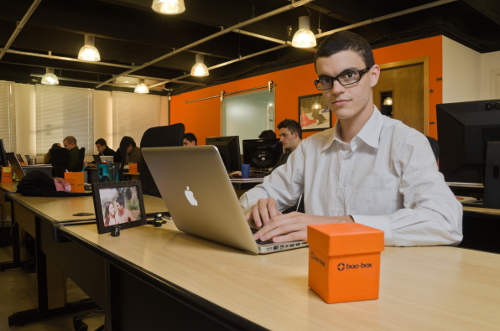
Adrian Bye: What stops the agencies from saying we’re just going to do what boo-box is doing?
Marco Gomes: Their core business is to make creative campaigns, planning and help the advertiser to deliver more value to the customer. Their business is not to talk to 430,000 websites. Most of them are not even companies, so you are not dealing with a company but with a person. It is very complex to pay 30,000 or 40,000 people that are not companies. That kind of operations is not their business. On top of that also the technology. boo-box is a technology company with lots of technology specific developers. We do have a team of 10 people in Argentina working only with innovation and technology. This is too different from the advertising agency business.
Adrian Bye: You have your development team in Argentina?
Marco Gomes: I have two development teams. We have 40 people in Sao Paulo and 10 people in Argentina. From the 40 people in Sao Paulo, eight of them are developers, and I have plus ten developers. So we have 18 people developing products and for structure and technology for boo-box. We are a technology company, a very technology focused company.
Adrian Bye: I’m interested in how the company started.
Marco Gomes: I was working as a computer programmer for an advertising agency in Brazil. I was creating very interactive advertising, like games inside banners and banners that interacted with webcams and microphones, very interactive ads to get the attention of the audience. All the ads that we were creating were awesome and very interactive and were going to the portals, another very singular aspect of our culture. The portals were, but are not anymore, the only thing people did online. People were accessing a portal, a very large website in the morning and were only using that website all day long. That was in 2002, 2003. The behavior of the internet user changed over time, but the advertising didn’t. In 2006, I was 20 years old, I and my friends were using blogs, Google search, social networks, to consume our content online and to get our content. But all the advertising was still old-fashioned and only going to the portals. People like me didn’t even access portals anymore, or portals were only one of the 200 websites that we visited a day. So I thought the money that is on the online internet advertising is all on the portals, but the attention is not. The attention is on the social media, on very small and specific websites. Our advertising should be not on the portals, but on these websites. 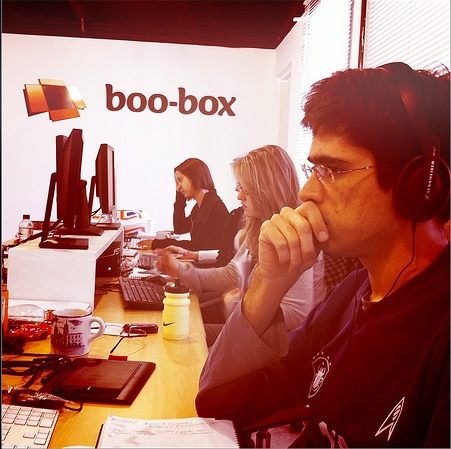
So I created a prototype or proposal of doing advertising campaigns not only on one website, but on 200, or 4000 small websites and put it online in December 2006. In January 2007 I sent it to TechCrunch through their online form and they wrote a very good piece about it, saying how these guys in Brazil saw it and nobody in Silicon Valley saw it. So Techcrunch wrote about it and lots of people came to talk with us, lots of people tried to become business partners and clients. This was in 2007. I didn’t knew anything about Venture Capital or anything. I was 20 years old and I only knew how to develop a computer program and websites. So I started learning. I met my co-founder, we started to think about starting a company out of it. From January 2007 to May 2007 we talked about it and I decided to drop out of college, quit my job. I was a tech leader of a team of 15 developers in this big advertising agency. I quit my job, moved to Sao Paulo with no money and started working.
Adrian Bye: But you had a business.
Marco Gomes: No, I didn’t. I only had a prototype, and no company. I started working on it. We started a company formally in August 2007 when we got the investment. We started the company and got the investment at the same time. After that we spent 18 months to create this technology system. We spent 18 months and two million dollars working on this technology system to display the correct advertising on the correct website. We were not talking about one website or two websites anymore, we were talking about 10,000 websites, 50,000 websites.
Adrian Bye: So your first investment was two million dollars?
Marco Gomes: No, our first investment was $300,000 in August 2007. After that we got some other investments. In November 2010 the company was going very well, we had clients and were growing a lot. Intel saw our product and our company, liked it a lot and made a series A investment. I can’t say how much, but it was a standard series A, a couple of million dollars so we could keep growing our company. We used it mostly to bring more human resources to the team. That was in November 2010. In 2011 we merged with this artificial intelligence company in Argentina and kept growing the company with more experienced professionals from the market. Now we do have 1,500 advertisers historically since 2009 when we started the commercial operations and we do work with the biggest advertisers in the country. We do work with Microsoft, Google, Unilever, Fiat, Volkswagen, Ford, all of the banks. All the biggest advertisers in the country work with boo-box.
Adrian Bye: That’s great. We’re almost out of time. Is there anything that you want to cover that we haven’t discussed?
Marco Gomes: Recently I gave a talk at the UN about creative economy and the importance of independent publishing to democracy. I think that is pretty important because it’s totally related to what we’re doing here with advertising. Why is it important? Independent publishing is what true democracy is because all big media venues like newspapers and TV channels have hidden interests, their own agenda. What they talk about is completely biased by their own interests. But independent publishers are not biased to anything. If they don’t like a car, they write that they don’t like the car. They are not linked to the industry that is doing it. If they don’t like a cell phone or a politician, they will say it. That is very important to democracy, not only on the consumer side, but also in politics. Advertising can provide this independent publishing. If you are independent and you have good advertising services at your disposal, you can earn money with what you are writing. If you get a lot of attention with your independent publishing, some large media group buys you and you start writing to them. With good internet advertising services like boo-box and other places you can keep earning your money, making your living out of it, and you don’t need to sell out your opinion or work. You don’t need to work or write for a large media group. You can keep being independent. And I think that is why the work of boo-box and other similar players on the internet and other places is very important. With the advertising money going from the advertisers to these independent content producers, other countries can get better because you have better content online. Better content online attracts better audience, and better audience attracts more advertising money. And with more advertising money, the publisher can create better and better content, because you have money to travel, to give an interview or to buy a better camera to make a video to produce better content. So this cycle of advertising is pretty important, advertiser money going to independent publishing, independent publisher doing better content, better content driving more audience and more audience driving more advertising money. This is a very strong cycle that can produce a better society, especially here in Brazil.
Adrian Bye: That’s a pretty powerful message. How did they respond to that at the UN?
Marco Gomes: They liked it alot, I got some applause on that. It was good, but I hope it generates two results, not only applause, but also actual changes in the society.
Adrian Bye: Yes, exactly. That’s a good message.
Marco Gomes: Thank you for the space and the opportunity to share my thoughts on so many things. That’s really good.









